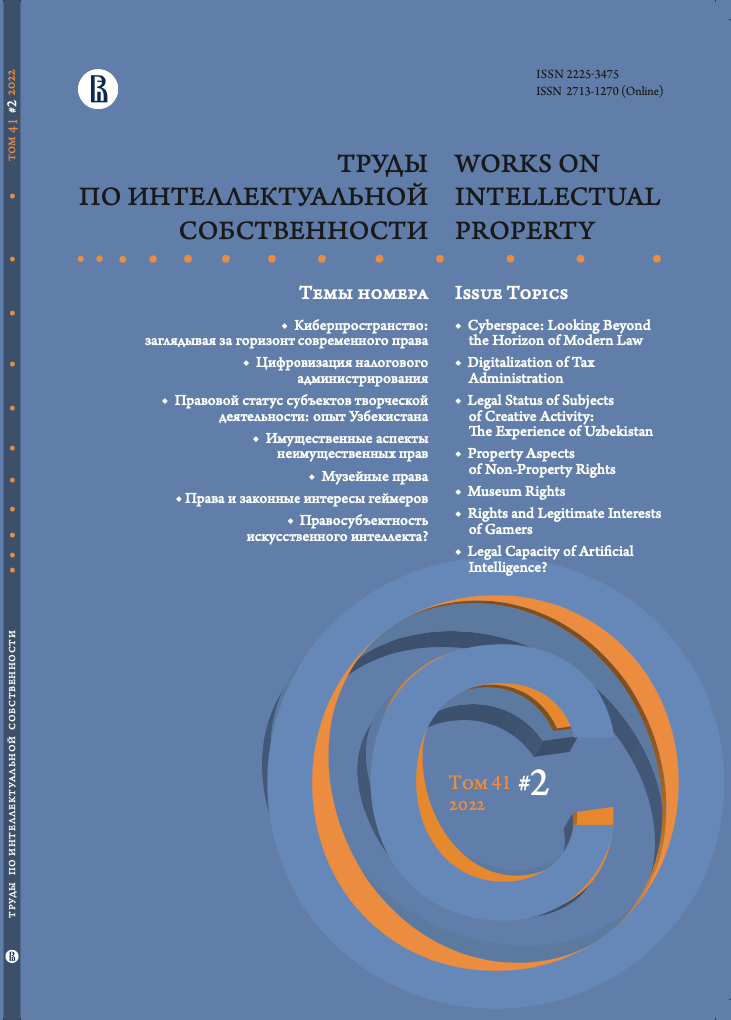ИМУЩЕСТВЕННАЯ СОСТАВЛЯЮЩАЯ ЛИЧНЫХ НЕИМУЩЕСТВЕННЫХ АВТОРСКИХ ПРАВ: ВОПРОСЫ ТЕОРИИ И ПРАКТИКИ
Аннотация
Вопросы, связанные с определением правовой сущности личных неимущественных авторских прав, остаются в центре внимания многих ученых, но, несмотря на это, отдельные аспекты названного института не получили в современной доктрине однозначной трактовки. К числу таких дискуссионных аспектов относится вопрос о наличии имущественной составляющей в содержании названных правомочий, который приобрел особую актуальность на фоне тотальной коммерциализации гражданского оборота. Цель автора — выявление и анализ тех особенностей личных неимущественных авторских прав, которые не в полной мере соответствуют их легальной регламентации и традиционному пониманию. Показано, в частности, что авторские права на обнародование произведения, его неприкосновенность и его отзыв имеют дуалистический характер, поскольку реализация рассматриваемых правомочий, отражающая духовно-творческий мир автора, как правило, затрагивает и его имущественную сферу, придавая экономическое содержание возникающим правоотношениям. Именно наличие имущественного элемента в содержании рассматриваемых прав обусловливает возможность их перехода к наследникам умершего автора; это означает, что они далеко не всегда неразрывно связаны с личностью автора. Особое внимание уделяется анализу ситуаций, в которых автор создает произведение по заказу лица, заинтересованного в его продвижении в качестве результата собственной интеллектуальной деятельности. В подобных случаях имеет место возмездная передача не только исключительного права, но и абсолютно непередаваемых и неотчуждаемых личных неимущественных авторских прав — права авторства и права на имя, в связи с чем возникает немало теоретических и практических проблем, нуждающихся в анализе и разрешении. Основной вывод заключается в следующем: правовая сущность личных неимущественных авторских прав столь же сложна и многогранна, как бесконечно сложна творческая деятельность, поэтому право не всегда может облечь их в стандартную правовую форму, свойственную иным личным неимущественным правам. Именно этим объясняется многообразие представленных взглядов и суждений, создающих теоретическую основу для дальнейшего совершенствования соответствующего раздела российского законодательства.

